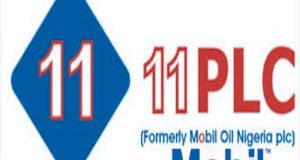………..by Victor Egbo……….
The Nigerian National Petroleum Corporation (NNPC) Limited has secured a $3 billion emergency crude repayment loan to support the naira and stabilise the foreign exchange market.
NNPC Limited secured the crude-for-cash funding from the African Export-Import Bank (Afreximbank) headquarters in Cairo, Egypt.
Meanwhile, experts are saying that this loan strategy is a difficult petroleum economic strategy. They are wondering if the loan will be used to expand Nigeria’s crude production? It is said that using the loan to strengthening the naira will in turn make foreign goods more attractive which the reverse should have been the case given Nigerians’ love for imported goods.
“High dollar against naira makes oversea goods less attractive and high naira against dollars makes imported goods more attractive, a dilemma, perhaps. Intersting, however, is the role of NNPCL and what is in need for them. Production loan, usually, is for petrolum production capacity expansion in asset with production allocated to make payments. I guess this is an unusual petroleum economics decision analytics” said Prof. Wunmi Iledare, Professor of Petroleum Economics.
Meanwhile the Manufacturers Association of Nigeria MAN and the Lagos Chamber of Commerce and Industry (LCCI ) have reacted to the recently released inflation figure which is 24.08 percent for the month of July, saying the significant rise in inflation largely reflects fuel subsidy removal and exchange rate devaluation.
The two foremost associations said they are concerned that there may be more inflationary pressures in the coming months due to the volatility of the Naira as well as the lagged effects of subsidy removal and its transmission to general prices.
What you need to know about NNPC Ltd’s $3billion Emergency Crude Repayment Loan from Afrexim bank
1. What is the $3 billion loan about?
The NNPC Ltd. secured an emergency $3 billion crude oil repayment loan from AFREXIM Bank. This is not a crude-for-refined product swap but an upfront cash loan against proceeds from a limited amount of future crude oil production.
2. Is this loan risky for NNPC Ltd. or the Nigerian Treasury?
No. The exposure for NNPC Ltd. is very limited, covering just a fraction of their entitlements. Additionally, there are no sovereign guarantees tied to this loan.
3. What’s the benefit of this loan to Nigeria?
The loan will assist NNPC Ltd. in settling taxes and royalties in advance. It will also equip the Federal Government with the necessary dollar liquidity to stabilize the Naira, with limited risk.
4. How will the loan be disbursed?
The funds will be released in stages or tranches based on the specific needs and requirements of the Federal Government.
5. Will this affect fuel prices?
A strengthened Naira as a result of this initiative will lead to a reduction in fuel costs. This means that if the Naira appreciates in value, the cost of fuel will drop and further increases will be halted.
6. What about subsidies? Are they coming back?
No. A stronger Naira will result in lower prices from the current level, making subsidies unnecessary. The deregulation policy remains unchanged.
7. How will the loan be repaid?
The loan will be repaid against a fraction of proceeds from future crude oil production. It’s a strategic move that ensures a balance between our current economic needs and future production capabilities.
8. What is the difference between this and previous swap deals?
This is not a crude for refined products agreement where the government does not earn any proceeds from the swap.
Financial Energy Review learnt that the NNPC will repay the loan with crude oil at an interest rate between eight percent and 11 percent.
NNPC said in a terse statement on Wednesday “The NNPC Ltd. and Afrexim Bank have jointly signed a commitment letter and Termsheet for an emergency $3 billion crude oil repayment loan,”
“The signing, which took place today at the bank’s headquarters in Cairo, Egypt, will provide some immediate disbursement that will enable the NNPC Ltd. to support the Federal Government in its ongoing fiscal and monetary policy reforms aimed at stabilizing the exchange rate market.”
Commenting on the development, Ajuri Ngelale, special adviser to President Bola Tinubu on media and publicity, said the new FX accretion is to enable NNPCL defray taxes and royalties in advance and provide the federal government with dollar liquidity to stabilise the naira via incremental releases based on the federal government’s needs.
“Stronger NGN = Lower Fuel Costs. This is a major buffer against the need to re-engage in subsidy regime,” Ngelale said in a X post on Wednesday.
 Financial Energy Review
Financial Energy Review





